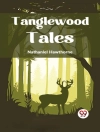In ‘The Well of Loneliness, ‘ Radclyffe Hall crafts a poignant and groundbreaking narrative that explores the intricacies of same-sex love amid the constraints of early 20th-century society. The novel employs a lyrical prose style, blending psychological depth with a stark examination of the struggles faced by its protagonist, Stephen Gordon, as she navigates her identity as a homosexual woman. Hall’s work boldly addresses themes of alienation, societal rejection, and the quest for self-acceptance, all while being published in a time when such topics were largely taboo, situating the novel within a critical literary context that challenges heteronormative ideals and scrutinizes societal conventions. Radclyffe Hall, a prominent figure in queer literature, was herself a member of the LGBTQ+ community, which undeniably influenced her complex understanding of love and identity. Born into a privileged family, Hall’s experiences of isolation and her relationships with women provided her with the lived experiences that enriched her characterizations and thematic explorations in ‘The Well of Loneliness.’ Hall’s activism and writing during a time of severe social stigma against homosexuality only further emphasize the groundbreaking nature of this work. This novel is essential reading for those interested in LGBTQ+ history, gender studies, and the evolution of modernist literature. Hall’s articulate and deeply human exploration of love amidst societal constraints remains strikingly relevant today, making ‘The Well of Loneliness’ a profound experience that resonates with anyone who values the struggle for personal authenticity in a conformist world.
เกี่ยวกับผู้แต่ง
Radclyffe Hall (1880–1943), born Marguerite Radclyffe Hall, stands as a seminal figure in lesbian literature, primarily recognized for her groundbreaking novel ‘The Well of Loneliness’ (1928). Hall’s writing is characterized by its courageous exploration of lesbian identity and love at a time when such subjects were taboo and subject to legal censure. ‘The Well of Loneliness’ follows the life of Stephen Gordon, a woman who identifies as an ‘invert’, a term used at the time to describe homosexual individuals. Despite its lack of explicit content, the book was subject to a notorious obscenity trial in the UK, which resulted in its being banned. Yet, it emerged as an important work for its portrayal of LGBTQ+ issues and is often cited as the quintessential work of lesbian fiction from the early 20th century. Hall’s literary style is marked by a lyrical yet straightforward realism and a deep compassion for her characters. Through her writing, Hall advanced the representation of queer identity in literature, making her works key texts in gender and sexuality studies. Her other books, like ‘Adam’s Breed’ (1926), which won the Femina Vie Heureuse Prize and the James Tait Black Memorial Prize, also exhibit her nuanced perspectives on social outcasts and spiritual seeking. As a figure, Hall defied the gender norms of her era, adopting a masculine appearance and publicly acknowledging her sexuality. Her contribution to literature not only narrates the rich inner lives of her characters but also offers a window into the struggles faced by gender and sexual minorities in the early 20th century.












